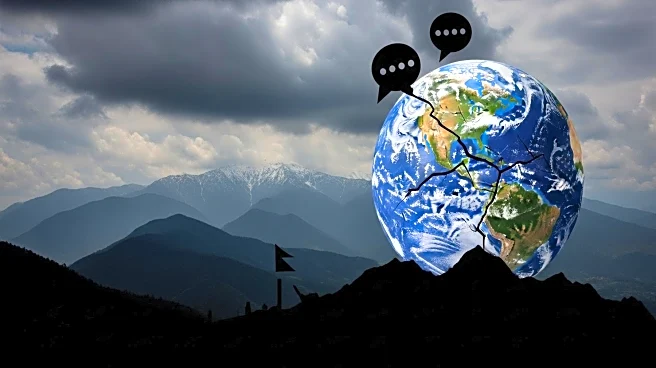What is the story about?
What's Happening?
ABC News has reported on a series of deadly protests in Nepal that erupted following the government's decision to impose a ban on social media. The unrest has been marked by significant violence, leading to the resignation of the country's prime minister. The ban was reportedly implemented as a measure to control misinformation and maintain public order, but it has instead incited public outrage and demonstrations. The protests have highlighted the critical role of social media in modern communication and the potential consequences of restricting access to these platforms.
Why It's Important?
The situation in Nepal underscores the complex relationship between government control and freedom of expression, particularly in the digital age. The ban on social media, intended to curb misinformation, has instead sparked significant civil unrest, demonstrating the importance of these platforms in facilitating communication and information sharing. This development is significant for U.S. policymakers and tech companies, as it raises questions about the balance between regulation and freedom of speech. The protests also serve as a reminder of the potential for digital policies to have far-reaching social and political consequences.
What's Next?
The resignation of Nepal's prime minister in response to the protests suggests potential political instability in the region. Observers will be watching closely to see how the new leadership addresses the public's concerns and whether the social media ban will be lifted. International human rights organizations may also become involved, advocating for the restoration of digital freedoms. For U.S. tech companies, this situation could prompt discussions about their role in supporting free expression globally and the ethical implications of complying with government-imposed restrictions.
Beyond the Headlines
The events in Nepal may prompt broader discussions about the ethical responsibilities of governments and tech companies in managing digital communication. The protests highlight the potential for social media to serve as both a tool for empowerment and a target for control. This situation could influence future policy decisions in other countries facing similar challenges, as well as shape the global discourse on digital rights and governance.
















